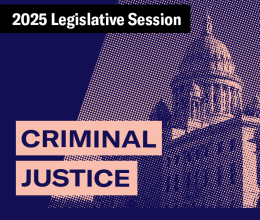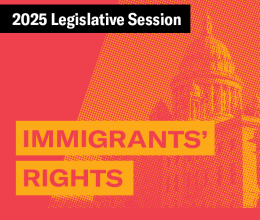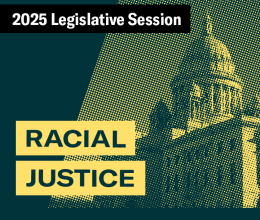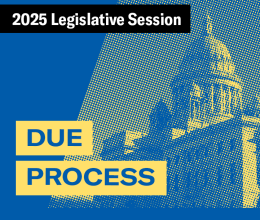Following the release Tuesday of Rhode Island resident Lilian Calderon from an immigration detention facility after being detained by ICE for almost a month, a federal judge in Massachusetts is demanding answers from the federal agency in response to the ACLU lawsuit filed last week that challenged her detention and helped lead to her release.
After releasing her from detention, ICE officials filed a motion indicating they expected to seek to dismiss the ACLU’s petition, filed by the ACLU of Massachusetts, as moot. However, in a memorandum filed yesterday, U.S. District Judge Mark Wolf questioned whether Calderon’s release rendered the case moot, pointing to a pattern by ICE of detaining and then releasing individuals like Calderon once court involvement ensued. Under the circumstances, the Judge has ordered ICE to explain their various actions in her case – from why they detained her in the first place to why they released her at the time they did.
The judge noted that he had “not been informed of the procedures that led to Calderon's release, the reasons for it, or whether ICE asserts that it had lawfully detained Calderon and has the authority to do so again in the same manner.” Saying that it was “now important that certain relevant information be provided to Calderon and the court,” the judge ordered ICE to file an affidavit by February 21 (the date a court hearing in the case had originally been scheduled) to address a number of issues, including:
- the legal basis for the decision to detain Calderon, including whether ICE considered her detention mandatory or discretionary;
- the procedures followed in reaching the decision and, if any, the individualized reasons for it;
- the reason(s) for her release;
- the reason(s) why she was released on February 13, 2018, rather than sooner or later;
- whether ICE asserts that it had, and still has, the authority to detain Calderon without an individualized determination of dangerousness and risk of flight;
- whether Calderon has been released for a defined period of time and, therefore, may be detained again; and
- whether others like her were arrested while taking steps to seek permanent residency at a Massachusetts or Rhode Island CIS office in January 2018, and if so, whether any of them received individualized determinations of dangerousness and risk of flight without filing habeas corpus petitions.
Calderon, 30, is a Guatemalan immigrant and mother of two young two children. She was detained by immigration officials on January 17th when she went with her husband, a U.S. citizen, to the Providence field office of the U.S. Citizenship and Immigration Services in Johnston as part of the process of applying for lawful permanent resident status.
The ACLU petition noted that in going to the interview in Johnston to seek to change her legal status, “Calderon followed procedures that the government itself has prescribed for avoiding such a tragedy.”
The ACLU petition also noted the effect of the detention on Calderon’s two children:
“Petitioner’s abrupt detention has already caused significant harm to her four-year-old daughter and 22-month-old son. Her daughter has begun having nightmares three or four times a night, bursting into tears without warning, crying for her mother, and becoming frightened by brief separations from other family members. Her son can no longer sleep in his crib on his own and becomes distressed because his mother is not there to soothe him.”
At a news conference on Wednesday following her release, Calderon described the emotional toll of her almost month-long detention at an ICE facility in Boston.
“We are pleased that Judge Wolf appears to recognize the games that ICE is playing with people’s lives. We are hopeful that the response that ICE must give will shed light on their disturbing practices," said Steven Brown, ACLU of RI executive director.
"The Court has demanded answers to the questions that both lawyers and observers of this case are struggling to understand: Why did this happen? Why does it keep happening? And, could it happen to this family again? They are questions that go to the heart of the case," said Adriana Lafaille, ACLU of MA attorney.







